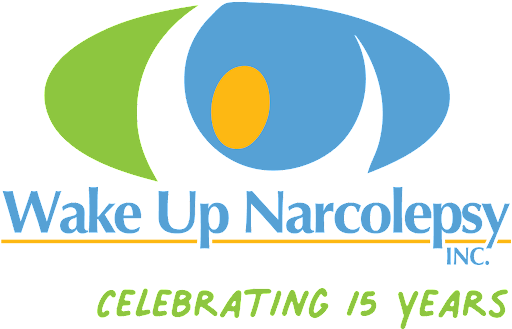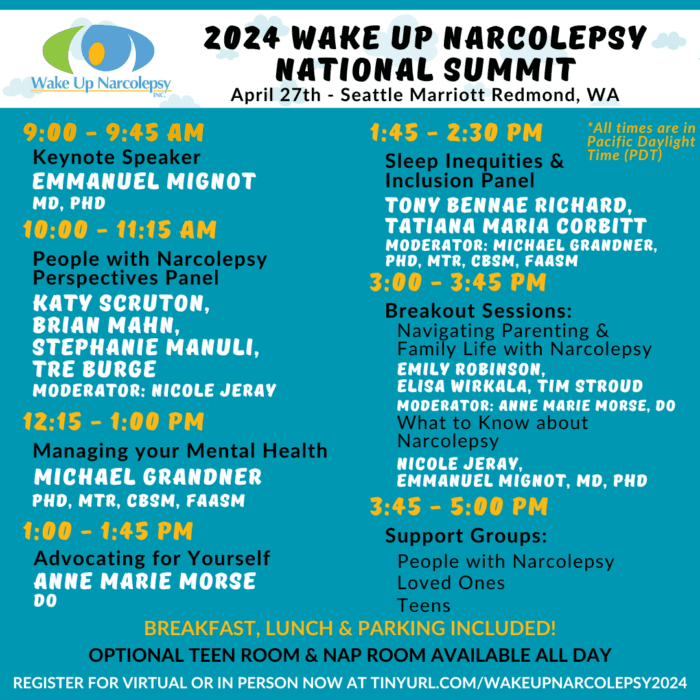Enter your location to get a list of specialists near you.
Select a conveniently located specialist from the results.
Set up an appointment.
FAQs
Is it possible to have Narcolepsy without having all of the symptoms?
Yes, some people have a full house of symptoms, while others experience only several. Since both the spectrum and severity of symptoms can vary considerably most people with Narcolepsy are impacted to differing degrees.
Are there different kinds of Narcolepsy?
Yes, there are two forms of Narcolepsy: Narcolepsy with Cataplexy (Narcolepsy Type 1) and Narcolepsy without Cataplexy (Narcolepsy Type 2). In Narcolepsy Type 1, an autoimmune reaction destroys the brain’s 70,000 orexin/hypocretin-producing cells.
Are people born with Narcolepsy?
No, people are not born with Narcolepsy. Generally, symptoms become apparent typically between the ages of 10-20 years although very young children are now being diagnosed.
How common is Narcolepsy?
Narcolepsy affects 1 in 2,000 people – over 200,000 Americans and 3 million people worldwide. In other parts of the world such as Japan, Narcolepsy appears as frequently as 1 in every 500. Narcolepsy is not rare, but it is a severely under-recognized, under-reported and often misdiagnosed disorder that occurs equally in men and women.
What causes Narcolepsy?
Narcolepsy is almost always caused by the lack of a neurotransmitter called orexin/hypocretin. Neurotransmitters are brain chemicals that neurons produce to communicate with each other and to regulate biological processes. Loss of orexin/hypocretin results in the inability to regulate sleep.
The reason for such cell loss remains unknown, but appears to be autoimmune in nature. That is, the body’s immune system selectively attacks orexin/hypocretin-containing brain cells. In rare cases, Narcolepsy can be caused by a genetic defect that prevents normal production of orexin/hypocretin molecules or a physical head injury.
Recent research points to two infectious agents that may be involved in triggering the condition. Frequently, Narcolepsy onset follows a seasonal pattern of higher rates in spring and early summer, following winter upper airway infection season. Researchers are investigating a possible link between Narcolepsy onset and streptococcus infection, such as strep throat and the H1N1 virus and vaccine.
Start Your Journey Here
Specific resources for newly diagnosed and loved ones.
Online Support Groups
WUN offers free, targeted online support groups to individuals with Narcolepsy and their families world-wide. Our programs are designed to bring together individuals who have been affected by the diagnosis of Narcolepsy and provide support and the community necessary to thrive. Individuals with Idiopathic Hypersomnia are also welcome to join these support groups.
Narcolepsy & Mental Health
Learn more about the connections.
Narcolepsy & Heart Health
Learn more about the connections.
Narcolepsy 101
We often hear from our community about the challenges of explaining Narcolepsy to others. Narcolepsy 101 is a series WUN created to easily share so that the hard work of explaining is in our hands and not yours!
What Does That Mean?
Terms to know when talking about Narcolepsy broken down in easy-to-understand ways.
Wake Up Narcolepsy In-Person and Online Conferences
WUN offers US & Canadian conferences and webinars for people with Narcolepsy, their families, educators, clinicians, and researchers. In these conferences and webinars, leading experts share their latest research on treatment options, the impact of Narcolepsy, comorbidity, and how to live a full life with Narcolepsy.
Screening Tools
These tools are often used by medical professionals. The purpose of putting them here is to help you understand your sleep and what you may be asked to fill out. These should not substitute for diagnostic tools and any questions or concerns should be directed to a healthcare professional.
Active Clinical Trial Information
NarcolepsyProject.com was developed for the benefit of patients and family members of those with sleep disorders. Their goal is to provide individuals with Narcolepsy and Idiopathic Hypersomnia (IH) with the latest information about current, actively enrolling clinical trials for Narcolepsy and IH, and provide a better understanding of these disorders and what treatments are available.
Sleep Habit Tracker
This resource is just a template and can be used for your own understanding of your sleep habits and for organizing this information to share easily when you have concerns. Some of the things we recommend documenting in the notes section are if you ate a large meal directly before bed, drank alcohol, slept in a different environment than usual or anything else that you think may affect your quality of sleep.
2024 More Than Tired – At the Heart of Narcolepsy
This is an educational program that provides tools and lifestyle tips to empower people living with narcolepsy to proactively manage their risk factors for heart diseases.
Age & Sleep
Wake Up Narcolepsy created a graphic from an AASM article in honor of World Senior Citizen’s Day 2023. Check it out!
Narcolepsy Toolkit for Women
Download the Society for Women’s Health Research’s Narcolepsy Toolkit to gain a better understanding of sleep disorders, treatment and care, and facts about Narcolepsy. The toolkit helps you learn how Narcolepsy affects individuals, specifically women, as well as their loved ones and provides information on which treatment options and resources are available.
Videos
Brochures (print on legal paper)
National Organization for Rare Disorders (NORD)

About WUNWake Up Narcolepsy is a 501(c)(3) nonprofit organization dedicated driving Narcolepsy awareness, education and research towards improved treatments and a cure. |



